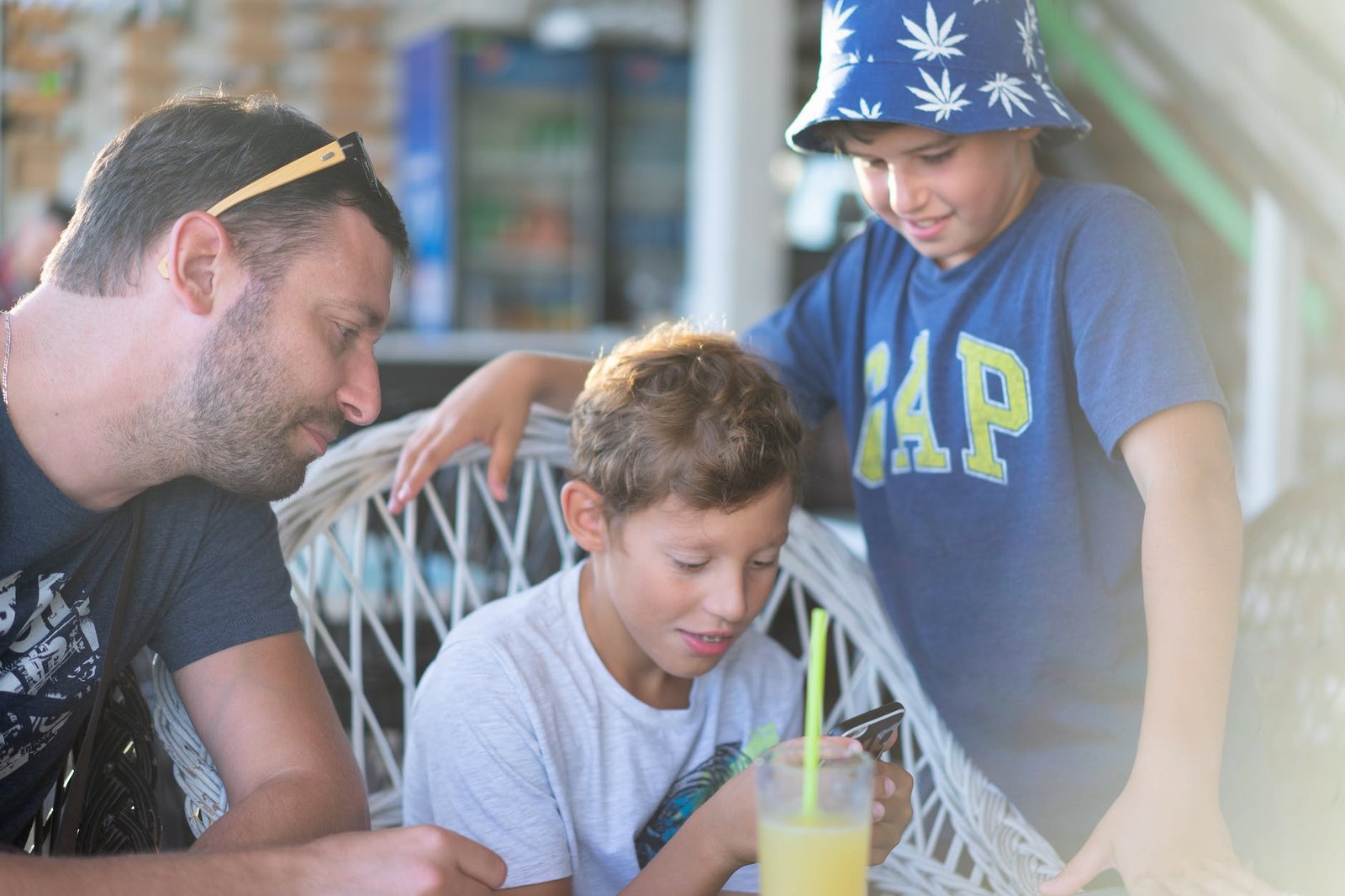Neuro-Affirming Strategies for Parents of Neurodivergent Teens
When bringing together and considering the perspectives and needs of everyone in our neurodivergent families there are bound to be conflicts. It is inevitable.
Let’s face it, conflict is part of life especially when we are parenting teens and parenting neurodivergent teenagers can add complexity to this.

It is a parent’s job to set boundaries that we feel will keep our children healthy and safe. It is our teenager’s job to push up against those boundaries and to strive for independence. It’s how we were made! It’s biological!
Keep in mind, that the teenage years are all our children figuring out who they are as a person outside of their families. There are a lot of conflicting thoughts and feelings inside of them.
This is a scary, overwhelming time for our children. They need the certainty and safety of someone who is Bigger, Stronger, Wiser, and Kind and who will allow them to go out into the world to explore and who will be there to catch them when they fall.
How Neurodiversity Can Add To Conflict In Families
In my family, we have a combination of people who are Autistic, ADHDers and AuDHDers. Even though we are all from the same family we all have our own unique sets of strengths and challenges which can be tricky to navigate.
For example:
One of my ADHD traits is time blindness which makes me chronically late for everything. My RSD (Rejection Sensitivity Dysphoria) then kicks in and tells me how everyone is angry with me and how useless I am, which sends me into a meltdown.
My children and hubby need to be places on time (15 minutes early). If this doesn’t happen they get anxious and angry and more often than not will have a meltdown.
This means that by the time we arrive at our destination, we are all dysregulated, frustrated, snappy with each other and emotionally drained. This is before we have even faced the sensory overload of a social situation.

I know that this sounds like a relatively small thing, but it has caused a lot of conflict in my family over the years especially when we didn’t know that we were neurodivergent. I mean it literally when I say that my children have PTSD about being late.
In neurodivergent families, there are not only brain differences to consider but also co-occurring conditions such as sensory processing challenges, time blindness, Alexithymia, poor interoception, PDA, RSD CPTSD and challenges with executive function which can put a huge strain on interpersonal relationships.
Need support for your family? Check out The Neurodivergent Family Toolbox
The Teenage Years, Increased Demands, Autism And ADHD
The teenage years are a time of increased demands for our children both internally and externally.
Internal Factors
Internally, the changes in our children’s brain structure during adolescence can lead to diminished executive function (logical and rational thinking and decision-making).
Fluctuating hormone levels affect our teenager’s brain’s ability to synthesise dopamine. This can detrimentally affect your teenager’s ADHD as this can affect their mood, focus and motivation levels. This can also lead to more dopamine-seeking activities such as acting impulsively or risky behaviours.
The onset of puberty means that our teenager’s bodies behave in unpredictable ways. For our neurodivergent teenage daughters managing periods can add a huge mental load.
Our teenagers are also faced with the realisation, and the accompanying internal conflict, that their lives are about to change.
On the one hand, they have an internal drive for autonomy and on the other hand, the fear and uncertainty of separating themselves from their parents and family of origin. For Autistic teenagers in particular who thrive on certainty this impending life change can feel almost life-threatening.

External Factors
Externally, the teenage years often involve starting high school which requires students to have a higher level of executive function this can include:
- Choosing from a large list of subjects.
- Changing classrooms and teachers for every subject.
- Learning to ‘read’ multiple individual teachers and their expectations of students.
- Keeping track of timetables, books and gear needed which can be different from day to day.
- Increased academic workload.
- Exams.
There is an increase in social demand too.
- For a lot of teens, starting high school can mean interaction with a larger group of peers. For many Neurodivergent teenagers, more social interactions and people mean more sensory overwhelm.
- Teens start to differentiate themselves into social hierarchies and ‘cliques’ that many Autistics find difficult to understand.
- The teenage years are when our kids explore sexual relationships with other people, sexuality, gender and identity. Many neurodivergent individuals identify as being queer, lesbian, gay, bisexual, asexual, non-binary or transgender. It can be challenging for teenagers to figure out where they ‘fit’ and frightening to go against social norms or come out to friends and family members.

It is important to reiterate that Autistic and ADHD teenagers experience the world differently. Autism and ADHD are dynamic and often invisible disabilities that make life harder to navigate. Autistic and ADHD brains have to work harder to process and filter out sensory information and make sense of social situations. Our children’s (and our own) capacity to handle demands can vary from moment to moment – day to day.
Children do well when they can
Dr Ross Greene
It is also important to note that if your teenager was not identified as being Autistic or as having ADHD as a child and has been highly masking the emotional labour of this will really start to take its toll in the teenage years. If they have recently been diagnosed they may need time to grieve and process this new information as well as any emotions that arise.
The Power Of Holding Yourself And Your Teens In The Most Generous Assumptions
So many parents misinterpret their children’s dysregulated behaviours such as rudeness, school refusal and melt-downs as their teen being a ‘bad kid’. It is normal to feel triggered by our children’s behaviours. Many neurodivergent parents are the victims of trauma and struggle with RSD (rejection sensitivity dysphoria). This can show up in how we parent our children.
This in conjunction with our cultural programming can cause us to make snap judgements about what these behaviours mean.
We may interpret our children’s behaviours to mean that our teenagers don’t respect us, they are trying to manipulate us or that they don’t love us or are not even trying.
But remember, connection-focussed parents, see their children and themselves as ‘good inside’. I find it useful to reframe my children’s behaviour from “My teenagers are giving me a hard time” to “My teenager is having a hard time”.
Common Behaviours That Indicate That Your Neurodivergent Teenager Is Struggling:
- Disruptive or dysregulated behaviour – such as more regular meltdowns and shutdowns.
- Body dysmorphia.
- Gender dysphoria.
- School refusal or ‘school can’t’.
- Withdrawal from relationships.
- Numbing behaviours such as drug and alcohol use.
- Avoidant Restrictive Food Intake Disorder (ARFID).
- Panic attacks, anxiety, depression, burn-out or suicidal ideation.
All these behaviours can be extremely distressing but please remember they are merely windows into the needs of our children. It is our job to figure out these needs and to adapt our parenting approach to support them.
Examining Your Own Experiences With Conflict
One of the main reasons that parents find it difficult to manage conflict is that we grew up with an unhealthy relationship with conflict. No one showed us what healthy conflict and conflict resolution looked like, so how would we know what to do when conflict arises?
Because of your lack of skills in this area, you may find conflict situations with your teen to be really confronting.
However, this does not make you a bad person or parent. It simply means that you are lacking the skills to be effective at dealing with conflict. This is something that we can learn to do better by acquiring the necessary skills.
Here are some of the internal struggles you may be experiencing with conflict:
- Perhaps as a child, you were taught that ‘children were meant to be seen and not heard’ or that your opinions did not matter.
- You may have been unrecognised as being neurodivergent and your Autistic or ADHD traits were labelled as lazy, weird, stupid, difficult, disruptive, too sensitive, weak, rude or ‘too much’.
- It might be that conflict and tension were the predominant emotional undercurrents of your home when you were growing up. You might have internalised this conflict and made it your fault. This could have led to you becoming hypervigilant about everyone else’s feelings. Perhaps you made this mean that it was your job to keep everyone happy so that you could feel safe. This could have led to you ‘fawning’ or pleasing others whenever you are in a conflict situation as a default behaviour.
- You might have been taught to fear anger (especially if you were born female). However, if you were born male, it could be that you learned that any other emotion than anger was ‘weak’ and that you were only allowed to express anger.
This is not an exhaustive list of why you may be confronted by conflict with our teenagers. Our relationship with conflict and certain emotions such as anger can be very complex. However, I bring this up because our internal struggle with conflict can show up in how we parent our teenagers.
I invite you to think about how your thoughts, emotions and behaviours were treated by the adults in your life. How did this impact you and how you view conflict?

For instance, if you are a parent who was taught to ‘keep the peace’ your natural ‘fawn’ response in difficult situations might stop you from setting and maintaining healthy boundaries with your teens. Furthermore, if you were taught to fear anger you may find yourself caving in again and again amidst your teenager’s angry outbursts due to your discomfort with this emotion.
Conversely, if anger is your default emotion this could also be a barrier to you seeing times of conflict and struggle with our teens as an opportunity to connect with them.
If your Autism or ADHD were labelled as ‘character flaws’ these may become unwanted identities that you now unconsciously try to shut down in your children.
Our childhood experiences with conflict colour how we deal with conflict with our own children. If this is true for you please be gentle with yourself, parenthood is as much about raising ourselves as it is about our teens.
Responding To Your Teen During Conflict
As a neurodivergent parent and family coach, I have found that having good baseline knowledge of neuroscience has been life-changing.
Knowing how our own brains work as neurodivergent individuals allows us to understand ourselves and our children so much better.
It means that we can allow ourselves to take things less personally. This makes room to see ourselves and others through the lens of our most generous assumptions.
In this video, I share why it is difficult to reason with your teen when they are angry or upset and how this can trigger these same emotions in you:
@iamtanyavalentin Have you ever wondered why someone else’s emotions trigger you? I explain what is happening with this easy to understand model. #momofteens #momsoftiktok #parentingtips #parentingteens #connectedparenting #raisingteenagers #connectionfocusedparenting ##parentingteenagers #motherofteens #emotionalregulation #emotionalintelligence #coregulation ♬ original sound – Tanya Valentin – Family Coach
As you can see from this video when our or our teen’s ‘lid is flipped’ it is very difficult to connect with or reason with each other in this state. Our teens are in a state of fight, flight, fawn or freeze. I other words they feel like they are fighting for their survival. This is not a time for us to try to teach them something or explain our point of view. Their brain state makes it impossible for them to hear you.
Our neurodivergent teens have lids that are even easier to flip. This is because of the extra work that their brains are doing to process sensory overload, and how they interpret demands or things that may be going on in their bodies. A flipped lid for a neurodivergent teen may result in them going into ‘defense mode’ which could result in them trying to run away or harm themselves or others.

Making Allowances For Neurotype Differences
Knowing how your own neurodivergent brain works and what your Autistic and ADHD strengths and challenges are is an extremely powerful resource to have as a parent.
It allows you not only to understand yourself and your triggers better but allows you to remain curious about the strengths and challenges of your child. In our family, we often have conversations about how our brains work and how they are different to each other. In my experience, this can really help to transform conflict situations into moments of empathy, curiosity, compassion and shared understanding. We also communicate with each other when we are running low on ‘spoons’ so that we know to give each other space to rest and decompress.
When we as parents model talking about our own neurodivergence with our children, it empowers them with the language they can use to explain their own inner world.
Modelling making allowances for ourselves and asking for support makes it okay for them to ask for support in times of struggle and to advocate for their needs with friends, family and within educational and medical environments.
Here Are Strategies For Parents During Conflict
Here are some useful strategies that you may like to try in your family:
Know Your Role
As the parent, it is your ‘job’ to set the boundaries.
Your teenager’s ‘job’ is to push up against them. They don’t get to control or change our boundaries and we don’t get to control or change their feelings about our boundaries.
So many parents cave when their teen is unhappy with the boundary or gets angry with their teen because they are not ‘happy’ about the boundary. This is often because they are uncomfortable with their teenager’s emotions.
I invite you to consider that it is not your teen that you are finding confronting in these situations. Could it be that your body’s desire to escape the discomfort of your own emotions is the real problem?
Remember, during most times of conflict your teenager is feeling lost, out of control on overwhelmed. Their nervous system is in survival mode. Caving, back peddling on your boundaries or expecting them to be the parent can be really frightening to an already overloaded nervous system.
The truth is that your teen is not going to be happy with most of the boundaries you set. However, in this instance, it is not your job to make them happy. Your job is to set and maintain the boundary.
Keep Your Lid Down
As parents, our most important job, when our children have a ‘flipped lid’ is to keep ours down. If you can remember nothing else in a moment of conflict remember this.
You can do this by focusing on taking some really deep, long breaths or even having a drink of icy cold water.
What we say to ourselves as parents in these moments can also make a huge difference. Remember to treat yourself with kindness and self-compassion. Remember, this is a normal stage of parenting – conflict with your teen does not make you a ‘bad parent’ or them a ‘bad kid’.
Validate How Your Teenager Is Feeling
You don’t need to agree with your teenager’s point of view to validate and acknowledge how they are feeling.
Try saying, “I can see that you wish…” or “This is really hard for you, I get it, this is hard for me too.” or “I can see why you would feel upset, it makes total sense.”
Important: You are not condoning behaviours or being a permissive parent by validating your teen’s emotions. On the contrary, what you are demonstrating to your teen is that you are someone they can trust to be on the same team as them to work through tough issues instead of battling against them. This will allow you to be a co-regulation partner and resource of safety for your teen.
Strategies For Nervous System Regulation
If you notice that your teenager is going into a meltdown or shut down you may need to disengage from your teen physically or take the focus off of them by dropping your gaze or looking away.
Remember when your teen’s ‘lid is flipped’ they are not going to be able to hear you or take on board what you are saying. It is not a case of ‘won’t’ on your teen’s part but really a case of ‘can’t’.
It is essential to keep your own nervous system regulated. I have found counting inside my head and concentrating on my own breathing – making my out-breath longer than my in-breath can be an effective strategy for keeping myself calm and ultimately calming my teen.
Your own regulated nervous system acts like a ‘Bluetooth transmission’ of calm, while the shift in focus away from them further allows them to recover from survival mode as they are less likely to feel under attack.
Keeping your child, other children and yourself physically safe is also a priority during moments of dysregulation. A calm authoritative tone of voice and approach is best here. Remember your child is feeling unsafe. Your confidence and sense of certainty are immensely reassuring even if it doesn’t feel like it.
If they become too dysregulated allow your teen to have some alone time in their alone in their room to stim and regulate their nervous systems. You can always pick up the conversation again once everyone’s lids are back down again.
Sometimes we will have to choose our battles and practice some radical acceptance.

Work With Your Teenagers
We all like to feel seen, heard and understood in our struggles. The teenage years in particular a time when our teenagers yearn for control and interpendence. As Dr Ross Greene, creator of the CPS parenting model says, conflicts are an indication of an ‘unsolved problem’ for our children.
When our children or teenagers have ‘unsolved problems’ this means that they have difficulty meeting a particular expectation. Because the ‘unsolved problem’ is individual to the child or teen we need to get information from the child. This only happens if our children feel that they have a connection with us and can trust us. Children and teenagers don’t confide in and work with adults that they can’t trust or feel safe with.
It is important to engage our children in the problems affecting their lives and this only happens through moments of connection, by listening to our children and giving them agency.
How To Repair After Conflict
Making repairs after a conflict with your teenager can be challenging. We might have said things to each other during a moment when our capacity was low and our lids were flipped.
You may not want to be around each other or find the relationship to feel like ‘hard work’ or things may feel unsafe. Our (and our children’s) brains may be in survival mode and we could be making all kinds of meanings about what just happened. This can affect our power to make decisions or think rationally.
The important thing before doing anything is to allow yourself the time and space to regulate your own nervous system.
- Reach out for support from someone who you trust, or engage the support of a family coach.
- Take a self-compassion break.
- Breathe, take a walk or move your body in a way that feels nurturing to you and your nervous system.
Remember – this feels hard because it is hard and it doesn’t mean anything about you as a person and a parent. We all struggle with this stuff!
Once you have calmed your nervous system attempt a repair by owning your mistakes and apologising for your part. Do not expect your child to apologise to you. Remember – we all take our own time and this can’t be rushed.
The Power Of Playfulness
According to Dr Alberto Veloso “Playfulness is an emotions whisperer. Pleasure and repair go hand in hand.“
Playing with or having fun with your teen is the easiest and most enjoyable way to connect with them and rebuild connection capital between the two of you.
After all, we like to be around people who make us feel good and we naturally seek out more opportunities to spend time with them. On a sciency level, when we have fun our brains release feel-good hormones like dopamine, oxytocin and serotonin which relax us. These feel-good hormones make learning easier and support us to bond in a positive way with another person.
Play adds joy, vitality, and resilience to relationships. It can heal resentments, disagreements, and hurt and is a good way to help your teen to get out of Defense Mode.
Through play, our teens learn to trust us and feel safe. CLICK HERE for ideas to build connection capital with your teen and to repair through play.
Disclaimer:
The information in this blog is for educational purposes only. Although a lot of care and effort has gone into researching and creating this blog I do not speak for all neurodivergent people. Each neurodivergent person knows themself and their family best and I encourage you to look inside yourself to assess what is best for you and your family.
About The Author

Tanya Valentin is an AuDHD person, mum of three, family coach, author and podcaster.
Tanya is an educator/coach with 25 years of experience working with children and families. She specialises in guiding parents of Autistic & ADHD children and teens through burnout recovery.
She is the founder of the Autistic Burnout Care and Recovery program for parents and the host of the Parenting Neurodivergent Kids Together podcast.
Tanya’s work combines education, emotional support, and practical strategies, reflecting her commitment to helping families create sustainable, connected relationships during difficult times.
Need support? Book a FREE 30-minute call with Tanyas and their children.
Need personalised support for yourself and your family? Book your FREE 30-minute call with Tanya
